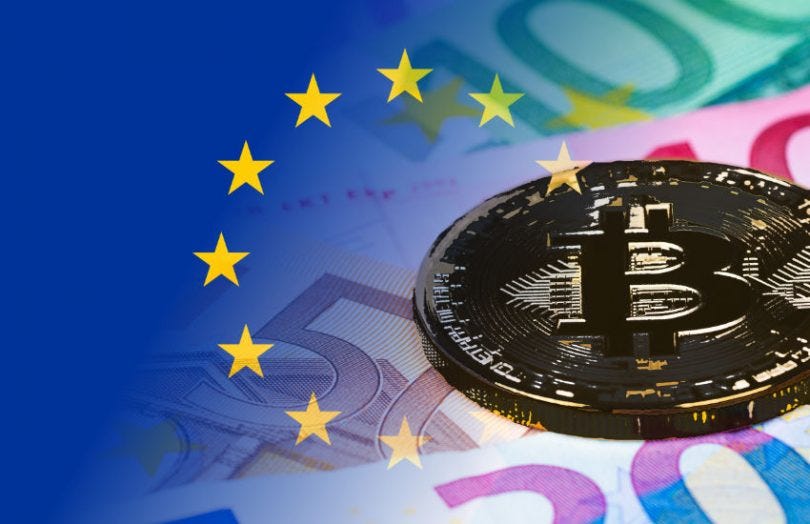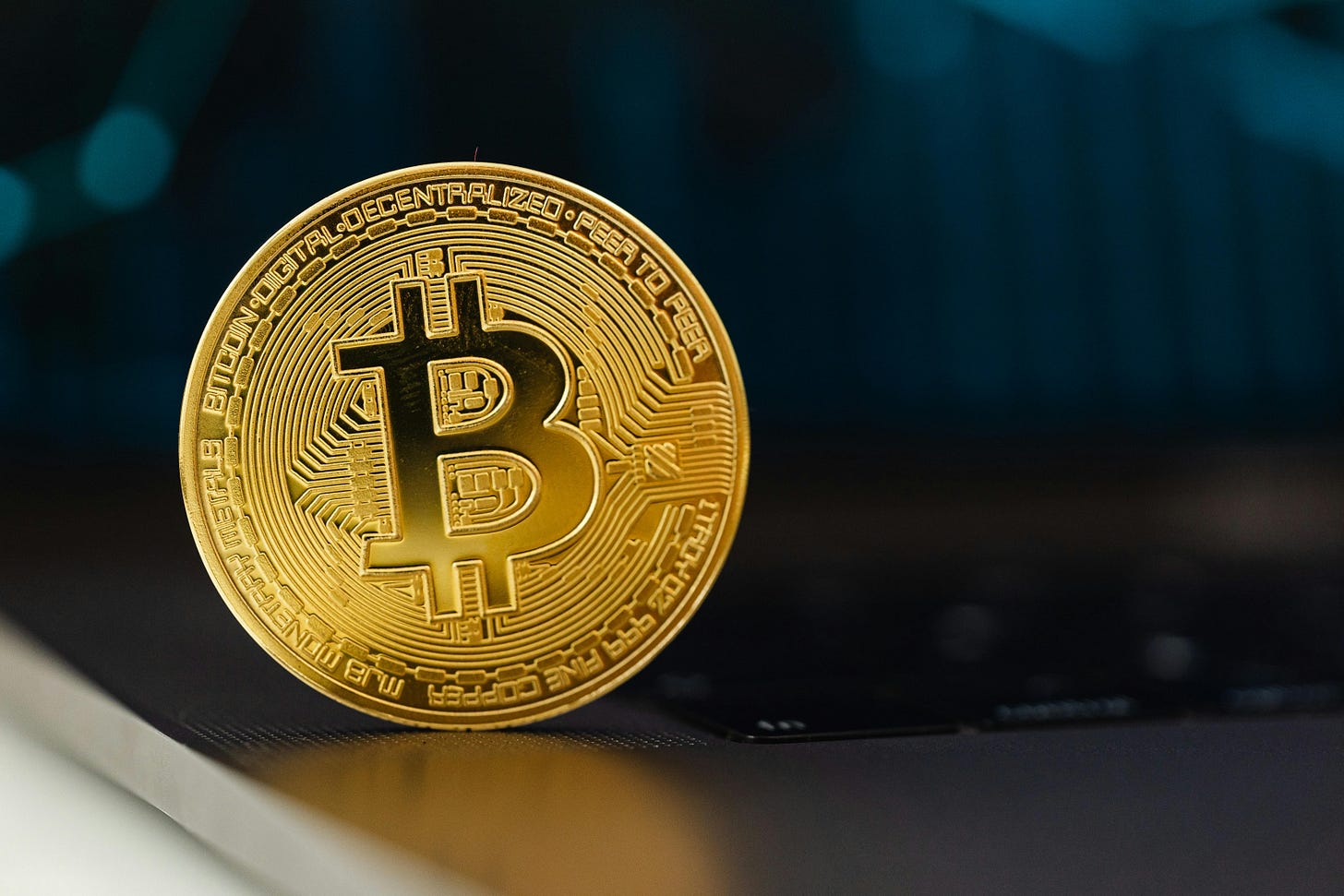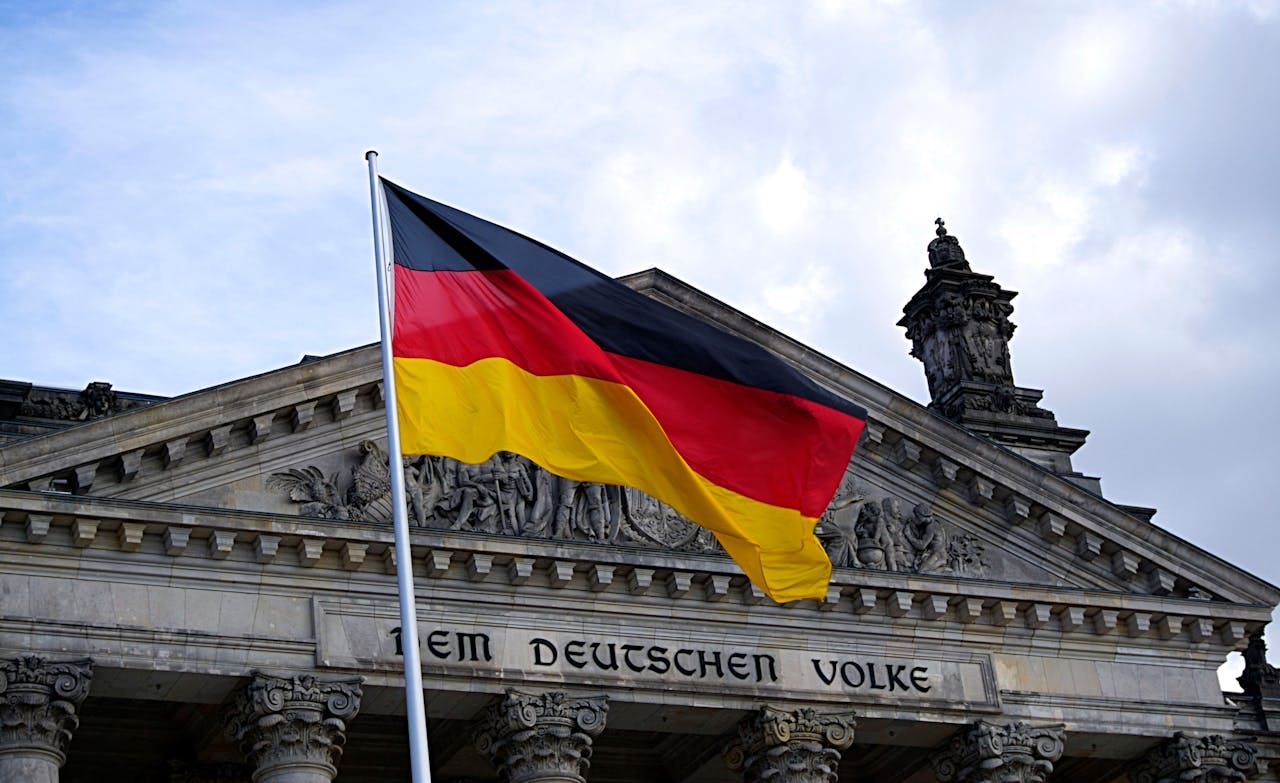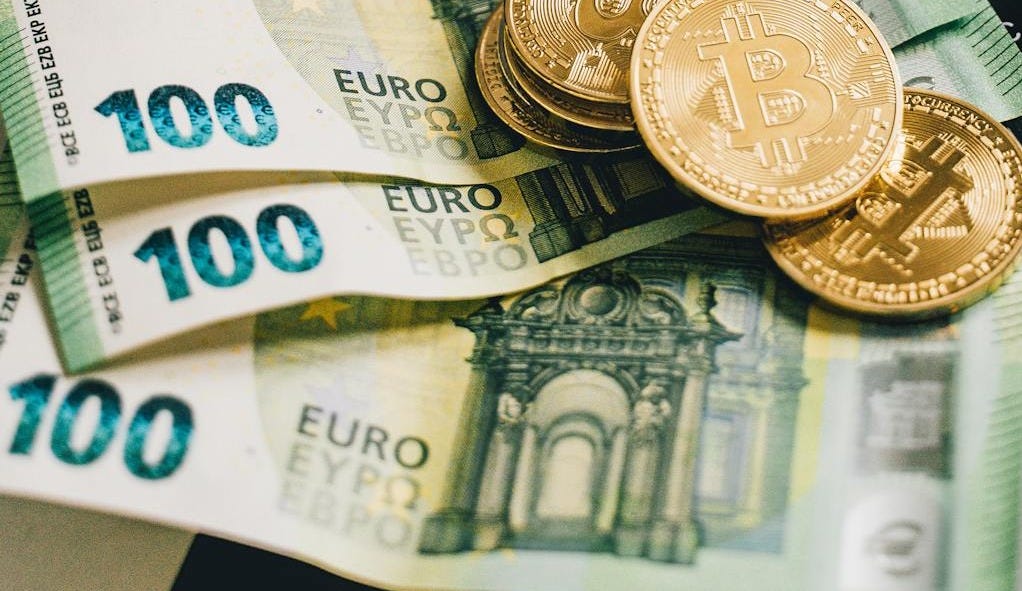The European Central Bank's Gamble on Bitcoin: A Strategic Move or Risky Bet?
Analyzing the Impact of a Bitcoin Reserve on Germany, the Eurozone, and Global Markets
The Case for Bitcoin as a Strategic Reserve for the ECB

A recent proposal by the German former finance minister has triggered a debate on whether the European Central Bank (ECB) should include Bitcoin in its reserves. While proponents argue it could hedge against geopolitical risks and foster innovation, critics warn of extreme volatility, speculative risks, and economic instability.
Adding Bitcoin to the ECB’s reserve portfolio would challenge traditional assets like gold and foreign currencies. Given its decentralized nature and fixed supply, Bitcoin appeals to those seeking diversification and protection against inflation—qualities that are increasingly valued in the face of global economic uncertainty. This raises critical questions:
What impact could adopting Bitcoin as a strategic reserve asset have on Germany's leadership role, the stability of the Eurozone, and Europe's global financial position?
In this article, I provide a balanced assessment of Bitcoin’s viability as a central bank reserve asset from different angles. The discussion weighs key arguments for and against a Bitcoin reserve, focusing on implications for Germany, the Eurozone, global markets, and central bank strategies.
Status Quo: Bitcoin and the ECB

The ECB’s Current Reserve Strategy
The ECB manages reserves to ensure monetary stability and support policy goals. As of the ECB’s 2023 annual accounts, these reserves totaled €87.7 billion, primarily comprising:
Gold (€30.4 billion, ~35%) and
Foreign currencies (€55.2 billion, ~63%), with the US Dollar accounting for 81% of foreign holdings.
While gold reserves serve as a stable store of value, foreign currencies offer liquidity and short-term safety through investments in securities and money market deposits.
Bitcoin’s Market Role and Institutional Adoption
With a market capitalization of $2 trillion (at the time of writing), Bitcoin has established itself as a cornerstone of modern-day financial assets. In 2024, the introduction of crypto-based ETFs has legitimized Bitcoin’s role. These funds have accelerated institutional adoption and hold a total of $112.60 billion in assets under management, with cumulative trading volumes exceeding $650 billion to date.
The unique features of Bitcoin, in particular, its fixed supply of approximately 21 million coins and its decentralized structure, appeal to investors seeking alternative investment opportunities to traditional assets like gold and fiat currencies.
The ECB’s Stance and Criticism
Notwithstanding these trends, the ECB remains skeptical. It prioritizes liquidity, stability, and the modernization of payment systems through initiatives like the digital euro. Critics argue that Bitcoin’s volatility and speculative appeal make it incompatible with central bank reserves, which require predictability and low risk. This critical stance was recently reinforced by a 2024 ECB paper highlighting Bitcoin’s redistributive effects and lack of economic productivity.
Arguments in Favor of a Strategic Bitcoin Reserve

Diversification in Reserves
The decentralized nature and fixed supply of Bitcoin provide a hedge against systemic risks tied to traditional reserve assets. For the ECB, adopting Bitcoin could reduce reliance on the US Dollar and enhance reserve diversification.Hedge Against Monetary Instability
Bitcoin’s capped supply design contrasts with inflating fiat currencies. While its long-term trajectory suggests potential as a store of value and a hedge against prolonged inflation or Euro depreciation, its mixed performance during market stress periods (e.g., during COVID-19 pandemic) highlights the need for caution.Leadership in Financial Innovation
Adopting Bitcoin, even in a limited capacity, could position the ECB as a leader in digital assets and financial innovation. Complementing the digital euro initiative, integrating Bitcoin into the reserve could signal Europe’s openness to innovation and attract investment in digital technologies.Enhancing Credibility and Global Influence
Recognizing Bitcoin’s potential could reinforce the ECB’s credibility in managing diverse reserves and signal Europe’s leadership in global financial trends. Institutional adoption underscores Bitcoin’s maturing market infrastructure, aligning it more closely with traditional assets.
Arguments Against a Strategic Bitcoin Reserve

Volatility and Instability
Sharp price fluctuations make cryptocurrencies unsuitable for stable reserves. Bitcoin’s annual volatility of 54.42% and a maximum drawdown of 76.63% since 2019 underscore its unpredictability (see also this article). Such extreme swings risk destabilizing the ECB’s balance sheet and eroding public trust.
Lack of Intrinsic Value
Critics argue that Bitcoin lacks intrinsic value, as it generates no income or economic output. Unlike bonds, which pay interest, or equities, which are backed by productive assets, Bitcoin’s value depends primarily on market sentiment. This speculative nature contrasts with the ECB’s focus on assets that provide liquidity or collateral.
Speculative Risks
Speculative trading of cryptocurrencies raises concerns about its suitability as a central bank asset. Gains for one investor often come at the expense of another, making Bitcoin a “zero-sum” game. For the ECB, holding such an asset could expose it to public criticism, particularly during market downturns when reserve losses might be questioned.
Regulatory and Operational Risks
Digital assets are a largely unregulated globally, exposing holders to fraud, hacking, and lack of consumer protections. Integrating Bitcoin into reserves would require costly infrastructure and cybersecurity investments, outweighing the potential benefits.
Ideological Misalignment
Bitcoin’s core principles of decentralization and freedom from institutional control clash with the ECB’s centralized mandate. Adopting it could undermine the ECB’s policy stance and credibility. Moreover, it could clash with its digital euro project, aiming to modernize payments within a controlled framework.
The Impact of a Bitcoin Reserve on Germany

Germany’s position as the Eurozone’s largest economy makes it a cornerstone of any policy shift involving Bitcoin adoption by the ECB. Bitcoin’s integration into the ECB’s reserves could offer opportunities for the German economy. Increased investment in the blockchain, fintech, and digital asset industries could bolster innovation leadership, attract global talent, and strengthen Germany’s competitive position in digital finance.
However, Bitcoin’s speculative reputation and volatility conflict with Germany’s traditionally conservative monetary policy. Public backlash could arise if Bitcoin-related losses or instability erode trust in the ECB, jeopardizing Germany’s credibility as a leader in sound monetary governance. Furthermore, Germany might face increased fiscal pressure to stabilize weaker Eurozone economies in the event of market instability caused by Bitcoin’s volatility.
Regarding regulatory progess, Germany’s leadership is already evident through the Markets in Crypto-Asset Regulation (MiCAR) and the recently passed Financial Market Digitization Act. These initiatives, alongside provisions for DORA and the Funds Transfer Regulation, pave the way for robust governance frameworks, positioning Germany as a pioneer in regulating digital asset.
However, diverting resources to address challenges could slow progress in other key areas, such as AI and green technology. Clear communication about Bitcoin’s role within reserves and Germany’s broader economic strategy will be critical to maintaining trust and integrity within the Eurozone.
Effects on the ECB’s Reserve Strategy

For the ECB, Bitcoin represents both an opportunity to modernize reserves and a potential risk to institutional stability. By diversifying away from traditional assets like the US Dollar and gold, Bitcoin could signal Europe’s leadership in digital assets and align with global financial trends. It could also strengthen Europe’s geopolitical influence by positioning the ECB as an innovator among central banks.
However, Bitcoin’s large price fluctuation remains a significant threat. A sharp market downturn could force the ECB to create new Euros to cover Bitcoin-related losses, enriching Bitcoin holders and exacerbating wealth inequality. Such actions could erode public trust in the ECB, undermining confidence in the Euro. Furthermore, the ECB’s actions as a significant Bitcoin holder could amplify market volatility, creating feedback loops that destabilize both Bitcoin prices and the Euro.
The implications for fiscal coordination within the Eurozone are profound. Bitcoin adoption could strain cohesion among member states with divergent economic priorities. While risk-tolerant nations may support Bitcoin’s inclusion, fiscally conservative countries like Germany are likely to oppose it. Such disagreements could fragment fiscal and monetary policy alignment, undermining the Eurozone’s stability.
Bitcoin’s adoption also raises challenges for financial institutions. Banks and lenders across the Eurozone would need to adapt their risk management frameworks to account for Bitcoin’s influence on reserve dynamics. This could increase operational costs, affecting credit availability and economic growth.
The ECB must balance Bitcoin adoption with its digital euro initiative, as the two narratives could conflict. While the digital euro represents a controlled modernization of payments, Bitcoin’s decentralized ethos contrasts sharply, potentially confusing the ECB’s strategic goals.
Global Implications for Markets and Central Bank Strategies

If the ECB adopts Bitcoin, it could catalyze a global shift in central bank strategies. The move might create a game-theory dynamic, compelling other central banks to follow suit to avoid competitive disadvantages. However, the new US administration’s discussions about establishing a strategic Bitcoin reserve could see the Federal Reserve act faster, pressuring other central banks, including the ECB, to reassess Bitcoin’s role in reserves.
For emerging markets, digital assets could offer a hedge against currency instability and inflation, providing a diversification tool for reserves. Countries like El Salvador and Argentina have already taken steps to hold Bitcoin as part of their financial strategies. However, this shift also introduces risks. Emerging markets are particularly vulnerable to speculative pressures and capital flight, which Bitcoin’s volatility could exacerbate. These dynamics could destabilize weaker economies, heightening the need for coordinated global regulation.
Geopolitically, Bitcoin adoption could enhance Europe’s influence by positioning the Eurozone as a pioneer in digital finance. Investment in blockchain technologies and decentralized systems could strengthen the region’s innovation ecosystem, fostering new standards in digital assets. However, strategic vulnerabilities remain. For example, Bitcoin mining operations are concentrated in non-European regions like the U.S. and China, exposing Europe to external risks.
From a regulatory perspective, the ECB’s Bitcoin adoption could set a global precedent. Clear frameworks for managing Bitcoin’s risks—such as fraud, hacking, and taxation—would be required, diverting resources from other priorities. For example, Germany’s leadership in shaping these frameworks could enhance its role in global financial governance.
Finally, Bitcoin’s transparency offers both opportunities and risks. Greater visibility into reserve management could enhance public accountability, but perceptions of speculative behavior might erode trust in central banks. Balancing these conflicting narratives will be essential to ensuring monetary stability while fostering innovation.
A Realistic Perspective for the ECB and Bitcoin
In conclusion, Bitcoin offers diversification and innovation opportunities but poses significant risks to the ECB’s stability and credibility. A pragmatic approach, such as testing Bitcoin in limited allocations with strong risk frameworks, could balance innovation with stability and position the ECB as a pioneer in digital finance. If the ECB were to allocate 1% of its reserves, it could acquire around 9,500 Bitcoin as of today, which corresponds to 0.045% of the total supply.
However, the broader question remains: can the ECB take on such a pioneering role while safeguarding the trust and resilience of its monetary system?
Ultimately, the answer lies in its ability to balance the fine line between embracing change and preserving its foundational mandate.
Sources: Bindseil & Schaaf (2024), Cointelegraph, European Central Bank, FAZ, Ledger Insights, Reuters, The Block, World Population Review



